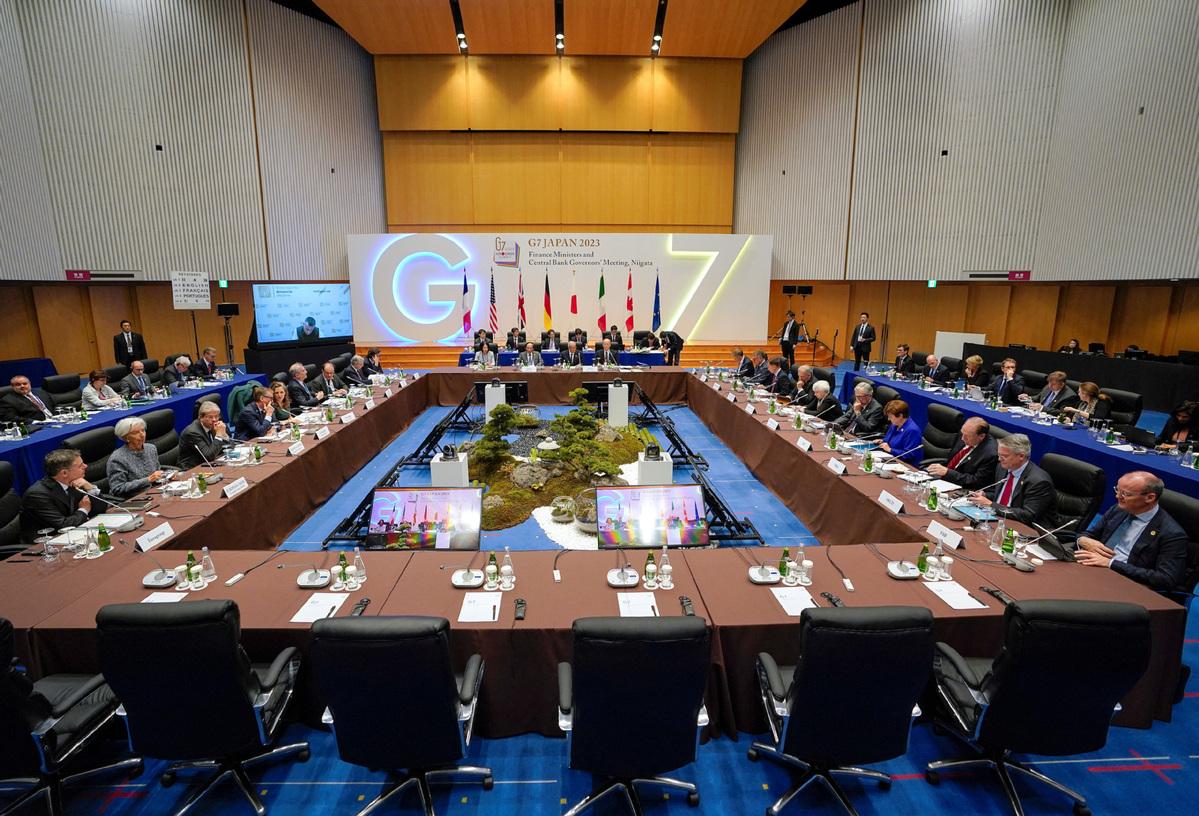
The G7 Finance Ministers and Central Bank Governors' Meeting opening session starts at International Conference Room of Toki Messe in Niigata, northern Japan, May 11, 2023. [Photo/Xinhua]
This is an editorial from China Daily.
Although US Treasury Secretary Janet Yellen had called for "coordinated action" by G7 nations against so-called "economic coercion" from China ahead of the G7 finance ministers' meeting that concluded on Saturday, the communique that was issued didn't make any specific mention of the topic.
Yet on Friday, one week before the three-day G7 Summit opens in Hiroshima, Japan, "a US official familiar with the discussions" told the Reuters that the leaders of the group will issue a statement including "a section specific to China" with a list of concerns that include "economic coercion and other behavior" that violate the rules-based order.
Such agenda-setting in advance is a customary tactic employed by Washington to hijack the discussions of the developed economies, and the extent to which the United States can manipulate such gatherings shows how brazenly it imposes itself on its allies.
By prompting its allies to join it in accusing China of "economic coercion", a complaint it has customized for China, Washington is trying to justify its future interventions in these countries' economic and trade relations with China, and even empower itself with the right to punish China on behalf of its allies.
The Countering Economic Coercion Act of 2023 its lawmakers introduced to Congress in February, which is yet to be passed by the Senate, sheds light on the scheme. It aims to "authorize the President to take certain actions to assist foreign trading partners affected by economic coercion and penalize foreign adversaries".
After exhausting the means to coerce China via its own economic and trade exchanges with China, the US is now eyeing those between its allies and China as a way of bolstering the power of its blows.
Both the bill itself and the preset agenda for the G7 Summit serve to show that it is the US that is resorting to "economic coercion" to achieve "strategic political objectives or influence sovereign political actions" through "actions, practices, or threats" that are undertaken to "unreasonably restrain, obstruct, or manipulate trade, foreign aid, investment, or commerce with the intent to cause economic harm", as the bill unintentionally clarifies.
If any country is cause for concern because of its economic coercion, it is the US. It has been overstretching the concept of national security, abusing exports control and taking discriminatory and unfair measures against foreign companies of different countries. Not even G7 members have been spared from US economic coercion and bullying.
If the G7 Summit is to discuss a response to economic coercion, it should first discuss its response to that of the US.

 中文
中文



